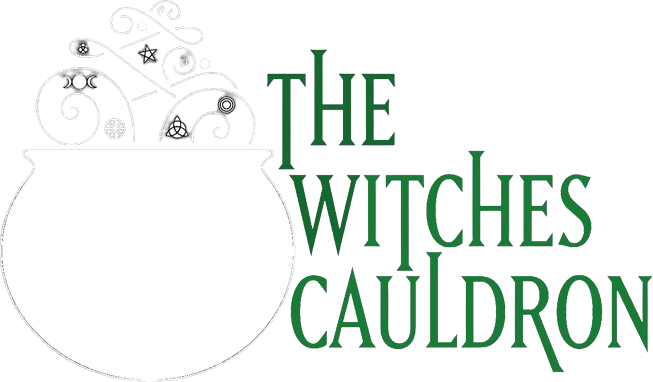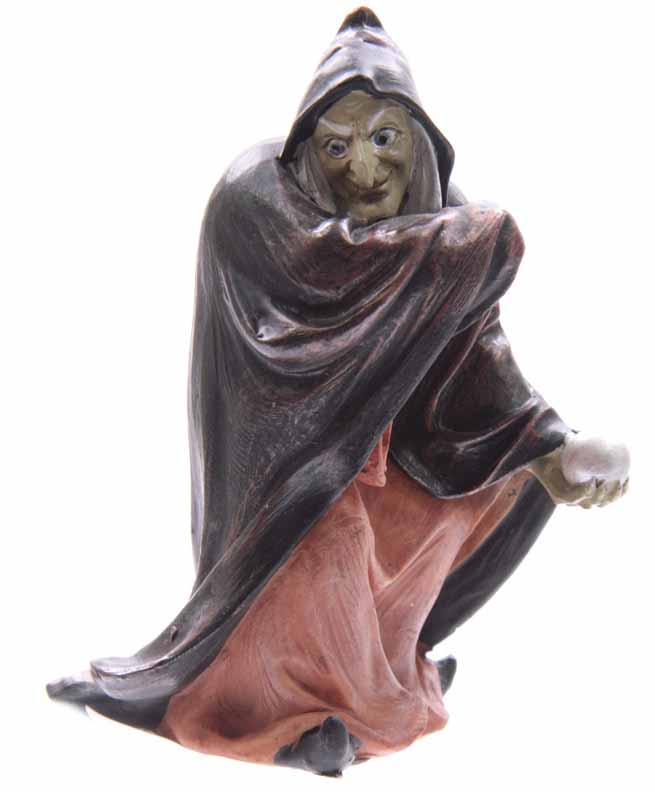“Is this real? Or has this been happening inside my head?”
Dumbledore beamed at him…“Of course it is happening inside your head, Harry, but why on earth should that mean it is not real?”
– JK Rowling, Harry Potter and the Deathly Hallows
One could be forgiven for wondering if JK Rowling, the famously private and introverted creator of the Harry Potter series, is really a pagan or a witch. She, of course, refuses to comment. The hysteria that she caused with stories of a magical school teaching young witches and wizards was just plain entertaining. Now, type ‘Is JK Rowling a Witch?’ into a search engine and you’ll soon be buried in religious websites claiming that paganism, Satanism, and even Illuminati symbolism is hidden within the texts. The books have even been described as ‘instructional manuals of witchcraft’. After all, Circe and Hermes are demons, right? Please.
Hysteria and scaremongering aside, I think it’s clear that JK knew what she was creating as she wrote, weaving a tale that became steadily darker and more realistic as it went on. Many are keen to be disparaging about magical wands, Diagon Alley and Owl post, but few ever delve into the symbolism of the stone cauldron in which Voldemort is reborn, or the status given in the novels to the magical properties of blood. What’s more, I’m convinced that JK Rowling knows about not only witchcraft, but has experienced life in the pagan community. Anyone who’s lived in Glastonbury has come across a character like Trelawny. And who hasn’t met someone self-styling themselves as a velvet-clad wizard, all the time trying to recreate Dumbledore’s twinkly-eyed, yet oddly piercing gaze?
Not all pagans actually like the Harry Potter books, despite fundamentalist religious claims that they are helping us convert the young and innocent to our ways!
When it comes to Harry Potter, there are two camps amongst modern pagans: those who feel that it’s a flashy take on serious occultism that could lead newcomers down the wrong path, and those who, well, quite like it, actually. I am a huge fan, and something of a Harry Potter nerd, having read and re-read the books as they were released, then listened to the full set of audiobooks for not one, but 5 rounds to date. The more I delve into the story, the more aware I am of JK Rowling’s clear knowledge of magic – not the kind that goes ‘zap’ or ‘bang’ – but real magic, its power to influence, to create and destroy: its consequences.
How else could she have fooled me into thinking that mallowsweet, the herb Firenze the centaur burns alongside sage to aid divination, is a real magical plant?
What struck me recently, when I was rediscovering Harry Potter and the Chamber of Secrets, is how much of a cock up magical characters in the novels could make of their lives, simply because they had access to magic.
Rookie Magical Mistake Number 1 – Using Magic When It’s Not Necessary
“Dark and difficult times lie ahead. Soon we must all face the choice between what is right and what is easy.”
– Dumbledore in Harry Potter and the Goblet of Fire
Why, oh why, when the barrier at Platform 9¾ is blocked to them, do Ron and Harry fly Mr Weasley’s Ford Anglia to school, instead of waiting for Ron’s parents to return and collect them, or sending a message to Hogwarts via Harry’s owl? Because they had a magical alternative, of course, which seemed easier and a bit more sexy. Plus, it was a clever part of the plot that allowed Ron and Harry to be rescued from the giant spiders later on. But I digress. Turning to magic when there are more mundane options available is bad news. I often hear people say that we are ‘energetic beings’ or ‘beings of light’. That’s all well and good, but we’re actually beings of flesh – matter, and the things our energetic, light-filled brains come up with tend to become manifest on the physical plane, like us. Getting magic involved in a mundane problem can supercharge all the factors involved without actually addressing the underlying cause of the issue. Dion Fortune recommends proper diagnosis of the problem before magical involvement, in Practical Occultism in Daily Life (and she actually did study and teach at a magical school, so she should know). Be honest with yourself before you do anything, particularly when it comes to your Achilles heal, whatever it may be – money and relationships are often the biggies – and engage in magic only when you’re sure what’s going on and what your part in it is.
Rookie Magical Mistake Number 2 – Ignoring Your Instincts
“And what would you say to Harry if you knew he was listening, Romulus?”
“I’d tell him we’re all with him in spirit. And I’d tell him to follow his instincts, which are good and nearly always right.”
– Lee Jordan and Remus Lupin in Harry Potter and the Deathly Hallows
Ignoring your instincts is easily done, as we’re still not often encouraged to ‘trust our gut’ (according to Western belief, only gritty cops embarking on a personal vendetta are really allowed to do it). The great thing about Harry is that he’s virtually guileless, slightly obsessive, quick to temper, and he struggles to hide his emotions. In short, he’s a teenager. Being a bit more ‘in touch with his feelings’ is a valuable asset later on. He’s not always right straight away, but he gets there in the end. He knows what feels right, and what feels wrong, no matter what anyone tells him. I hope young people see him as a role model, because this is an important life skill, not just something to be borne in mind when mixing with other witches and pagans. It can be easy to have our heads turned by seemingly more knowledgeable witches, shamans, priests and priestesses (you say athame, they say atha-may’…) but witchcraft is like anything – of it feels wrong, don’t do it. In magic, it’s even more important to be focused and positive than in daily life. If you have no flair for ceremonial magic, don’t do it, unless you have a burning desire to learn. If you hate cauldrons and wands and besoms then don’t bother with them – but don’t become close-minded, either. Attitudes change over time.
Rookie Magical Mistake Number 3 – Taking Up the Dark Arts
“It is our choices… that show what we truly are, far more than our abilities.”
– Dumbledore in Harry Potter and the Goblet of Fire
Most of us think we practise ‘good magic’ or ‘white magic’, but is that really the case? Just because we’re not murdering the innocent or creating horcruxes, it doesn’t mean we’re acting for the good when casting spells, or even when we’re not. Getting our thoughts in order is the first step. Poor Harry was hopeless at Occlumency, the art of protecting one’s mind from being broken into by dark wizards, but he developed the discipline to perform the difficult Patronus charm whenever he needed to – sometimes under extreme pressure. The Patronus requires one to conjure a happy thought and hold that feeling in the mind while casting the spell. Most ‘real magic’ is about achieving a focused mind. There was a time when I thought that I needed magic to protect myself and my loved ones from others. There was a whole lot of Rookie Magical Mistake Number 1 going on. Binding, banishing, and protective magic was flying around all over the place. What I should have been doing was focusing on personal power and The Daily Magic of Peace. It was a time when I believed that the Rule of Three was something invented by older witches to keep inexperienced under control. I’m sure I’m not the only one who has ever thought that morality is magic’s little bit on the side – something to be called upon on a whim. It doesn’t matter if believing in Karma, and the consequences of magic, particularly when it forces others to do our bidding, seems naïve. It isn’t naïve. Anyone who gives out rubbish will attract rubbish in return, it’s as simple as that. Voldemort found that one out, eventually. Try it for a week, or even a day! You’ll see what I mean.
So there you have it – whether you love him or hate him, Harry Potter will influence the way magical and non-magical folk see witchcraft from now on. The word ‘muggle’ has even entered popular pagan vocabulary. Luckily, JK Rowling has such a great understanding of how morality can be applied to magic, as well as the power of love and the transience of death… that if anyone did use the Harry Potter series as a magical manual, they wouldn’t go far wrong.


